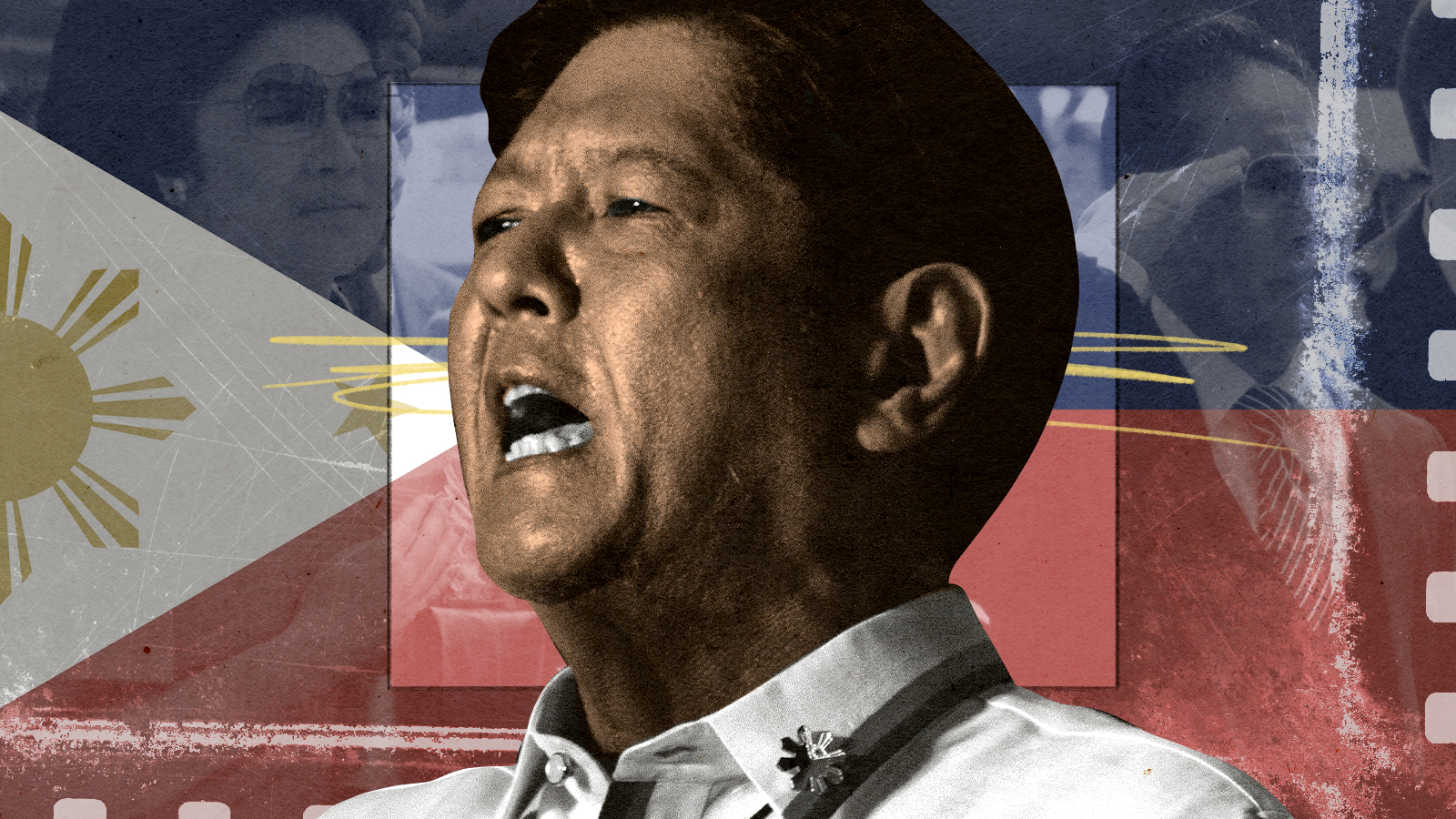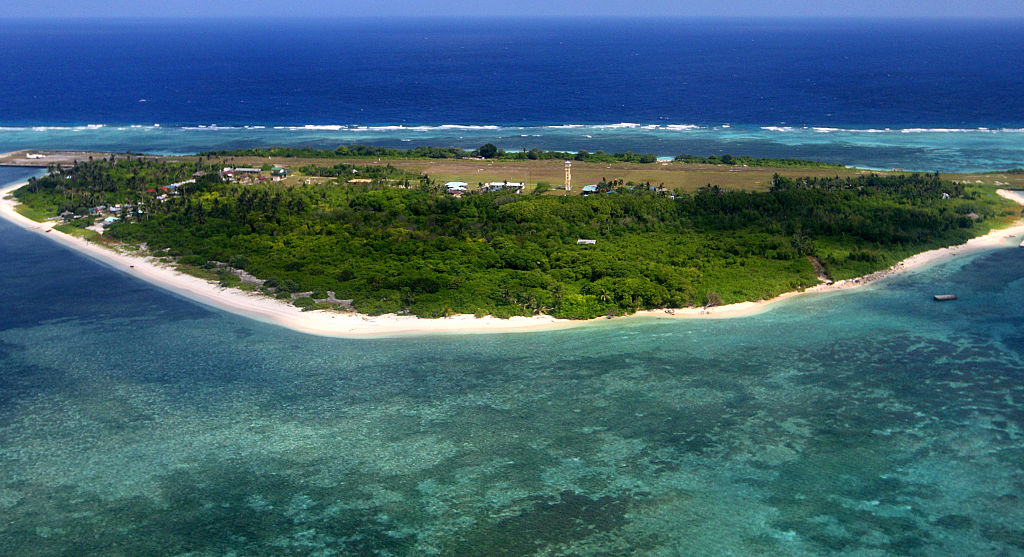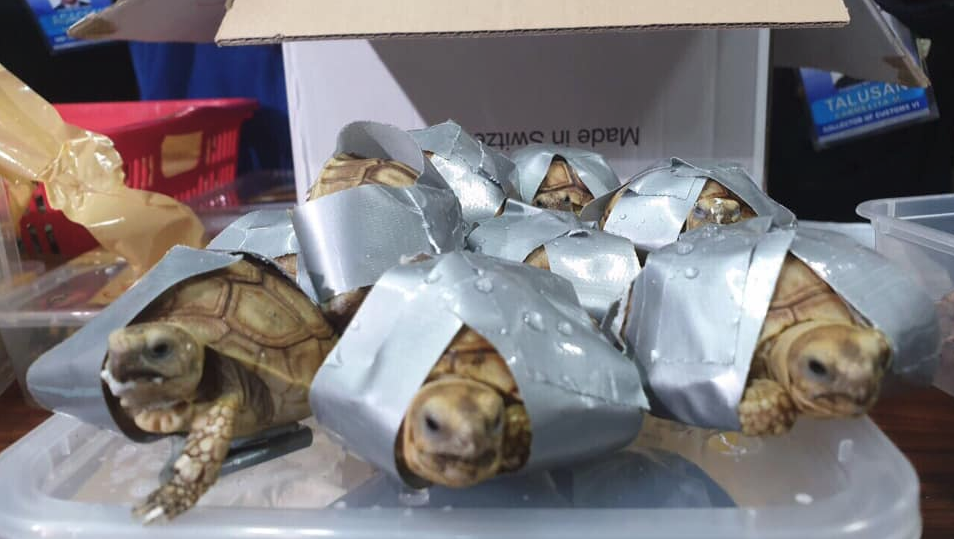What 'Bongbong' Marcos' victory means for the Philippines
The sharpest opinions on the debate from around the web


A free daily email with the biggest news stories of the day – and the best features from TheWeek.com
You are now subscribed
Your newsletter sign-up was successful
Ferdinand Marcos Jr. has won the presidency in the Philippines, defeating incumbent Vice President Maria Leonor "Leni" Robredo by a two-to-one margin. Marcos, known by his childhood nickname, Bongbong, successfully harnessed the power of social media to boost his campaign and rehabilitate the reputation of his father, Ferdinand Marcos, who was ousted from power in the 1980s after being accused of stealing billions from the national government. Marcos Jr., 64, is no newcomer — he served for years in regional offices then built a national profile as a senator. But his election, The Associated Press noted, marked "an astonishing reversal of the 1986 'People Power' pro-democracy revolt that booted his father into global infamy."
Several hundred people, most of them students, protested the election results in front of the national election commission office in Manila, the capital. Robredo urged her supporters to keep fighting against "the structures of lies" Marcos' critics say he used to embellish his own record and whitewash his family's bloody and corrupt history. Marcos released a statement through his spokesperson, Vic Rodriguez, saying: "Judge me not by my ancestors, but by my actions." Rodriquez called Marcos' landslide "a victory for all Filipinos." Will such a resounding election win unite the country, or, by electing the son of a dictator, have Filipinos put their democracy at risk?
Marcos' win threatens the Philippines' democracy
Marcos' election does not bode well for democracy in the Philippines, says Jonathan Head at BBC News. The new leader has vowed to continue President Rodrigo Duterte's "controversial anti-drug campaign," in which thousands have been killed. He has hinted his version will be less violent, but any continuity with his predecessor's policies could further normalize authortarian policies. So there is reason to be concerned about "the fate of democracy and civil rights, both of which suffered under President Duterte." And the opposition won't be expecting corruption — "always a problem in the Philippines" — to get any better "under a family with the reputation of the Marcoses."
The Week
Escape your echo chamber. Get the facts behind the news, plus analysis from multiple perspectives.

Sign up for The Week's Free Newsletters
From our morning news briefing to a weekly Good News Newsletter, get the best of The Week delivered directly to your inbox.
From our morning news briefing to a weekly Good News Newsletter, get the best of The Week delivered directly to your inbox.
Marcos has himself to blame for the suspicion
The elder Marcos was a "notorious strongman" with a taste for "murder, torture, and looting," says Binoy Kampmark in Eurasia Review. His mother was the "avaricious, shoe-crazed Imelda." "Children should not pay for the sins of their parents," but Ferdinand Marcos Jr. has justified "a healthy suspicion" of his intentions. "Bongbong has already done his father proud at various levels, not least exhibiting a tendency to fabricate his past." He has lied about his own resume, and rewritten his parents' history "using a polished, digital campaign of re-invention that trucks in gold age nostalgia and delusion."
This decisive vote showed the will of the people
You don't become "the first majority president" in Philippines history by fooling voters with "fake news," says Rigoberto Tiglao in The Manila Times. The people wanted Marcos as their leader. The "elite-manipulated revolution" that started with the government of Corazon Aquino, widow of slain senator and Marcos Sr. critic Benigno Aquino, "has been a failure, and the masses gradually realized" that these forces "have served only their class." Ferdinand Marcos Jr. simply pointed out how the opposition-written history was unfair to his parents, without engaging in a debate about his father's "track record during his martial law days." He also tapped into Duterte's power base by vowing to continue key policies and welcoming Duterte's daughter, Sara, as his running mate. But he wouldn't have won by a "landslide if not for his political acumen." With everything Marcos had going for him, his election was "inevitable."
A free daily email with the biggest news stories of the day – and the best features from TheWeek.com
Harold Maass is a contributing editor at The Week. He has been writing for The Week since the 2001 debut of the U.S. print edition and served as editor of TheWeek.com when it launched in 2008. Harold started his career as a newspaper reporter in South Florida and Haiti. He has previously worked for a variety of news outlets, including The Miami Herald, ABC News and Fox News, and for several years wrote a daily roundup of financial news for The Week and Yahoo Finance.
-
 Local elections 2026: where are they and who is expected to win?
Local elections 2026: where are they and who is expected to win?The Explainer Labour is braced for heavy losses and U-turn on postponing some council elections hasn’t helped the party’s prospects
-
 6 of the world’s most accessible destinations
6 of the world’s most accessible destinationsThe Week Recommends Experience all of Berlin, Singapore and Sydney
-
 How the FCC’s ‘equal time’ rule works
How the FCC’s ‘equal time’ rule worksIn the Spotlight The law is at the heart of the Colbert-CBS conflict
-
 Philippines says it spotted Chinese naval ship near disputed island
Philippines says it spotted Chinese naval ship near disputed islandSpeed Read
-
 More than 1,500 live turtles found in abandoned luggage
More than 1,500 live turtles found in abandoned luggageSpeed Read Officials in the Philippines believe smuggler got cold feet after learning of harsh penalties for wildlife traffickers
